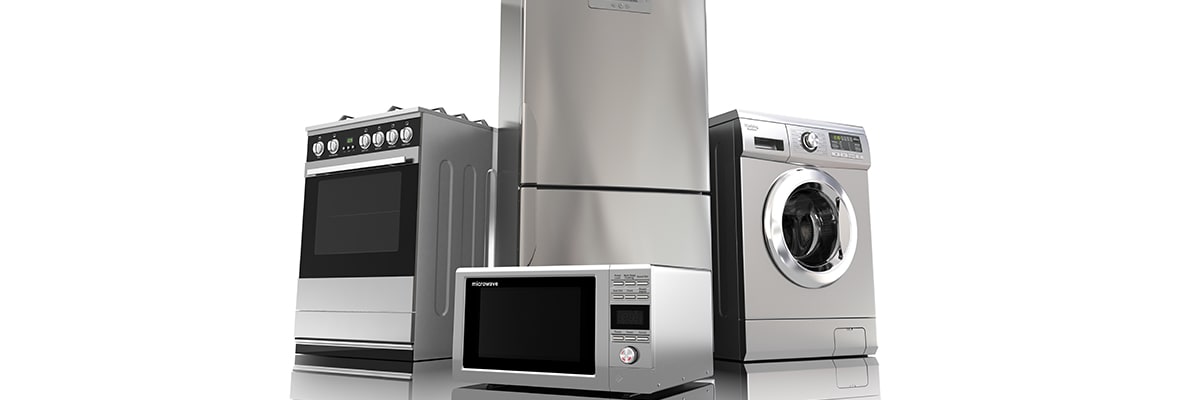
Return navigate_next
When is the Right Time to Replace Kitchen Appliances?
April 26, 2022 *
When the answer’s not obvious, many people wonder when they should decide to live with, repair, or replace kitchen appliances. Sometimes, older machines grow so worn and out-of-date that they make it clear that the owners have gotten their money’s worth and need to seek a replacement. Other times, the appliances look scuffed up or don’t provide features of modern versions.
When’s the Best Time of Year to Buy a New Appliance?
Bob Villa says that most people may get the best discounts if they shop for appliances at the time of year when manufacturers tend to release their latest models. During this time, retailers and manufacturers may offer promotions on new models to attract interest. The companies will likely discount last year’s stock to move it out of the way.
While no set rule for this exists, these guidelines typically apply:
- Fridges: May
- Dishwashers and washer/dryers: September to October
- Ranges or ovens: January

Typically, appliances also go on sale during major holidays, like before Christmas or during Labor Day, Memorial Day, or 4th of July sales. Stores hope to entice customers to use some of their vacation time to make big purchases, so they offer attractive deals.
Even if it’s impossible to perfectly time an appliance purchase, shoppers should compare prices and deals. A broken fridge motor or flooded dishwasher might not give consumers the option to wait long for a replacement. If possible, proactive shopping before an older appliance completely breaks down can help consumers save hundreds of dollars from the retail price.
How Long Do Major Appliances Typically Last?
Appliance lifespans can depend on many factors, including the brand, how often it’s used, and adherence to standard maintenance. Consumer Reports surveyed thousands of readers to find out how long major appliances have lasted for them.
Readers expressed an average expectation of their big appliance’s lifespan of about 10 years. Other sources say major appliances should last from about nine to 15 years. Expect refrigerators and gas ranges to last the longest, but dishwashers and washing machines may last less than a decade.

How to Tell When It’s Time to Replace Kitchen Appliances
Prudent consumers should call upon a qualified repair service for relatively new appliances. Consumer Reports found an average cost of repairs of about $160, which will be much cheaper than a new appliance. Of course, more significant problems may cost much more to repair, but the appliance owner can decline the service.
Many people would prefer to repair appliances to avoid wasting resources and adding to landfills. Thus, if they can’t diagnose the problem themselves, they don’t mind taking the extra effort to gather the information they need to make the best decision. Some service companies have affiliations with appliance stores, and they may offer to credit any home-visit charges towards the purchase of a new appliance.
For older appliances, buying a new machine may appear attractive. For instance, today’s Energy Star appliances can conserve electricity and water, making them cheaper to operate in the long run.

How to Avoid Expensive Appliance Repair Bills
Sadly, appliance owners will sometimes put off minor repairs because of concerns over the cost. In the long run, minor repairs can lead to larger ones. Luckily, Upsie’s extended warranties for major appliances can make these worries a thing of the past.
Popular features of Upsie warranties include:
- A choice of three- and five-year protection plans.
- Up to 11 months after appliance purchase to get a protection plan.
- 24-7 claims by phone and no-deductible, in-home repairs from certified appliance technicians.
- Industry-low prices so buying a new appliance and a warranty won’t strain budgets.
Sometimes, people struggle with the choice to repair or replace a major appliance. Upsie will keep appliances performing longer so customers can be confident in making a new purchase.
Learn More About Appliances:
* This article is over 6 months old and may or may not be updated.
